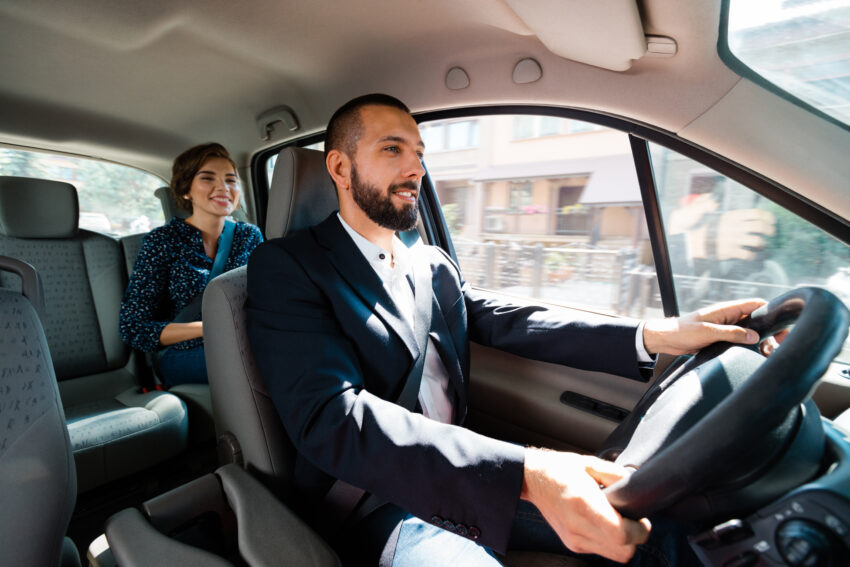Addressing Range Anxiety for Chauffeur Drivers: Practical Solutions
EVs are gaining prominence in the chauffeur industry due to their eco-friendliness and cost-saving advantages. However, one of the primary concerns for chauffeur drivers when adopting EVs is range anxiety.
Range anxiety refers to the fear of running out of battery charge before reaching a destination, a concern that can affect the overall efficiency and reliability of chauffeur services. In this article, we will explore the concept of range anxiety and present practical solutions to help chauffeur drivers address this challenge effectively.
Understanding Range Anxiety
The Psychological Barrier
Range anxiety is a psychological barrier that stems from the uncertainty of not knowing whether an EV can complete a specific journey without running out of charge. It is important to note that this anxiety is often disproportionate to the actual capabilities of modern EVs, which offer increasingly longer ranges.
Factors Contributing to Range Anxiety
Several factors contribute to range anxiety for chauffeur drivers:
- Perceived Range Limitations: Drivers may underestimate the actual range of their EVs due to misinformation or misconceptions about electric vehicles.
- Charging Infrastructure: Concerns about the availability and reliability of charging stations can create anxiety, especially during long trips or in unfamiliar areas.
- Battery Degradation: Over time, EV batteries may experience degradation, resulting in reduced range. This can add to drivers’ apprehension about long-term EV use.
- Weather Conditions: Extreme temperatures, especially cold weather, can affect battery performance and reduce range, adding to drivers’ anxiety.
Practical Solutions to Address Range Anxiety
Educating Chauffeur Drivers
One of the most effective ways to combat range anxiety is through education. Chauffeur companies should provide comprehensive training to their drivers, not only giving them guidelines on how to become chauffeur drivers but also on how to provide a quality service. This training should include understanding the capabilities and limitations of EVs, including explaining the real-world range of the vehicles they operate and dispelling common myths about electric vehicles.
Improving Charging Infrastructure
Investing in a reliable charging infrastructure is crucial for chauffeur drivers. Chauffeur companies can collaborate with charging station providers to ensure easy access to charging points in key locations, such as airports, hotels, and popular tourist destinations. Having a well-planned charging network can alleviate drivers’ concerns about finding a charging station when needed.
Battery Health Management
Monitoring and maintaining battery health
is essential to prevent unexpected reductions in range due to battery degradation. Chauffeur companies can implement battery management systems that track battery performance and schedule preventive maintenance to replace degraded batteries when necessary. This proactive approach ensures that EVs in the fleet consistently deliver the expected range.
Route Planning and Navigation Apps
Advanced route planning and navigation apps designed for EVs can help drivers optimize their journeys and minimize range anxiety. These apps take into account factors such as the vehicle’s current state of charge, planned stops for charging, and real-time data on traffic and weather conditions. By providing drivers with precise route information and charging station locations, these apps empower drivers to make informed decisions.
Backup and Rapid Charging Solutions
To address concerns about unexpected range limitations, chauffeur companies can equip their EVs with backup power solutions, such as range-extender generators or portable charging equipment. These options can provide a safety net in case drivers encounter unforeseen circumstances that threaten to deplete their battery charge.
Driver Assistance Technologies
Many modern EVs come equipped with driver assistance technologies that can help alleviate range anxiety. Features like regenerative braking, which recovers energy during deceleration, and energy-efficient driving modes can extend the range of the vehicle. Additionally, some EVs offer predictive range estimation, which provides drivers with a more accurate projection of their remaining range based on driving habits and conditions.
Case Studies and Success Stories
Tesla’s Supercharger Network
Tesla, a prominent EV manufacturer, has addressed range anxiety by developing its extensive Supercharger network. These fast-charging stations are strategically located along popular travel routes and allow Tesla drivers to quickly recharge their vehicles. Many chauffeur companies operating Tesla vehicles have reported reduced range anxiety and increased customer satisfaction due to the convenience of the Supercharger network.
The Amsterdam Electric Taxi Fleet
The city of Amsterdam boasts one of the largest electric taxi fleets in Europe. To alleviate range anxiety for taxi drivers, Amsterdam’s charging infrastructure includes rapid chargers located at taxi stands and charging hubs. The success of this initiative has inspired other cities to explore similar solutions for their chauffeur services.
Conclusion
Range anxiety is a legitimate concern for chauffeur drivers transitioning to electric vehicles, but it is a challenge that can be effectively addressed through a combination of education, infrastructure development, technology adoption, and proactive measures. Chauffeur companies that take a comprehensive approach to mitigating range anxiety will not only benefit from the cost savings and environmental advantages of EVs but also enhance the reliability and efficiency of their services. As the charging infrastructure continues to expand and EV technology evolves, range anxiety is expected to become a less significant barrier for chauffeur drivers, further accelerating the adoption of electric vehicles in the industry.
